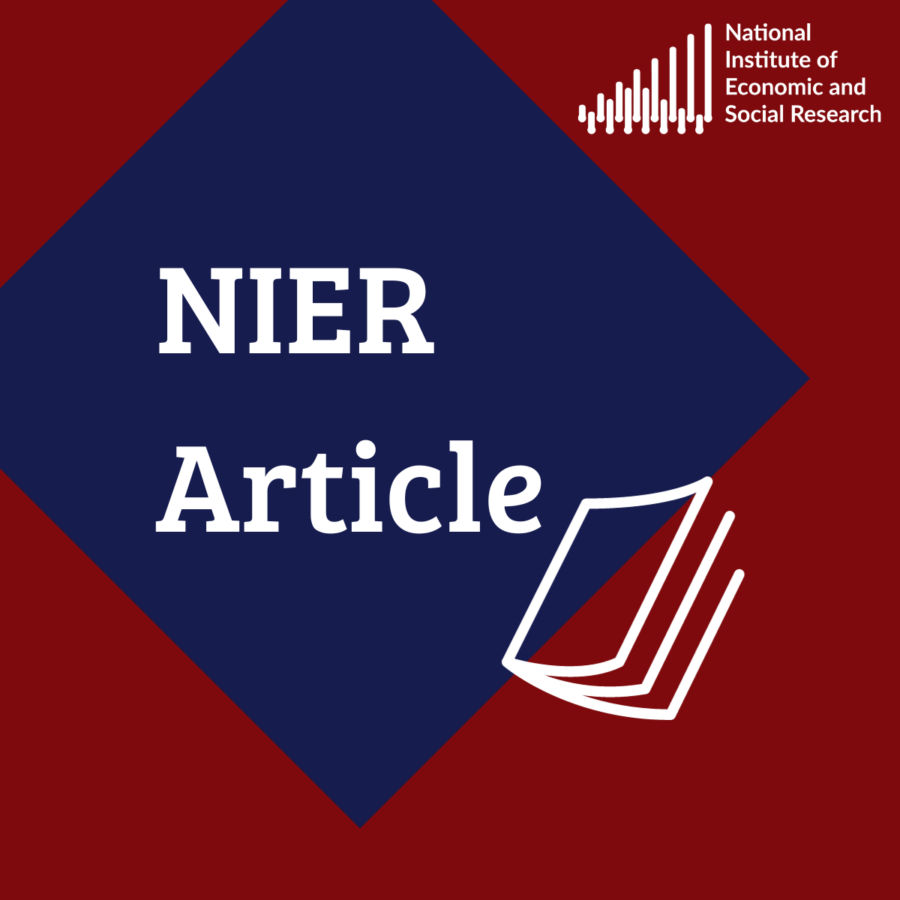The return to a university education in Great Britain
 Pub. Date
Pub. Date
 Pub. Type
Pub. Type

There has been a substantial increase in the number of individuals obtaining a degree in Britain, beginning in the 1960s, accelerating in the 1970s, slowing in the 1980s and speeding up again in the 1990s. As such, the proportion of young people studying full-time in universities increased from 13% in 1980 to 33% in 2000 and the Labour Government has expressed a desire to see this figure rise to 50%. This in turn has raised the issue of how the increase in the age participation rates in higher education is to be financed. In the White Paper The Future of Higher Education, the Government announced its intention to introduce from 2006 a new Graduate Contribution Scheme under which universities would be allowed to charge fees up to £3,000 per year for each course with payments by students deferred until after they had graduated. However, the proposed policy does not distinguish between different types of degree programmes, which may offer different potential returns.
Using data drawn from the Labour Force Survey, pooled over the period 1994 to 2003, we show that there are still sizeable returns to be gained from undertaking a degree. There is also evidence of substantial heterogeneity in returns across disciplines and of a greater advantage for women to investing in a university education. While it is the case that those undergraduate subjects that offer the greatest labour market rewards for men (such as Accountancy, Engineering and Maths & Computing) also offer some of the most substantial benefits for women, and that arts-based subjects consistently offer some of the lowest mark-ups for both men and women, there is more generally a diverse pattern of returns across disciplines between men and women.
At the postgraduate level, there is evidence of substantial earnings premia for some subjects over and above what are earned upon undergraduate degrees, and again there is substantial heterogeneity across disciplines. This is true for both Masters degrees and PhDs, and for men and women alike. In particular, further degrees in Business & Financial Studies appear to offer the greatest financial rewards for male and female graduates. However, in several cases, there is no additional gain to undertaking a PhD relative to a Masters degree.
It is also apparent that the cost of gaining a degree is far less than the potential increase in lifetime earnings for the majority of graduates. Under current charging arrangements, male graduates can expect a rate of return on their investment of around 9 per cent per annum and female graduates can expect a return closer to 13 per cent per annum. However, even were universities to introduce top-up fees at the top end of the proposed government scale, appreciable returns of 7.3% pa and 10.3% pa could still be expected by male and female graduates respectively. The only proviso to this is that if students see studying for a degree as a vehicle for higher career earnings, they should choose their course of study carefully. Arts and humanities-based subjects in particular have a considerably smaller impact upon lifetime earnings than other subjects, and in the case of men the additional monetary benefits are not sufficient to cover the cost of attending university.















